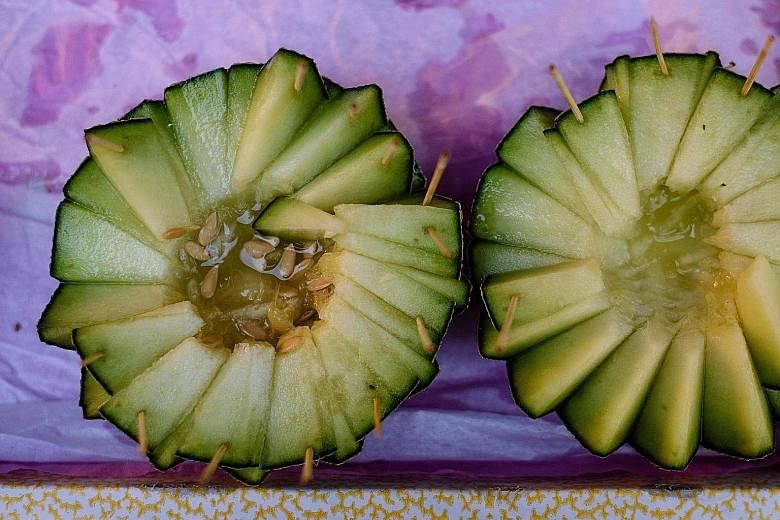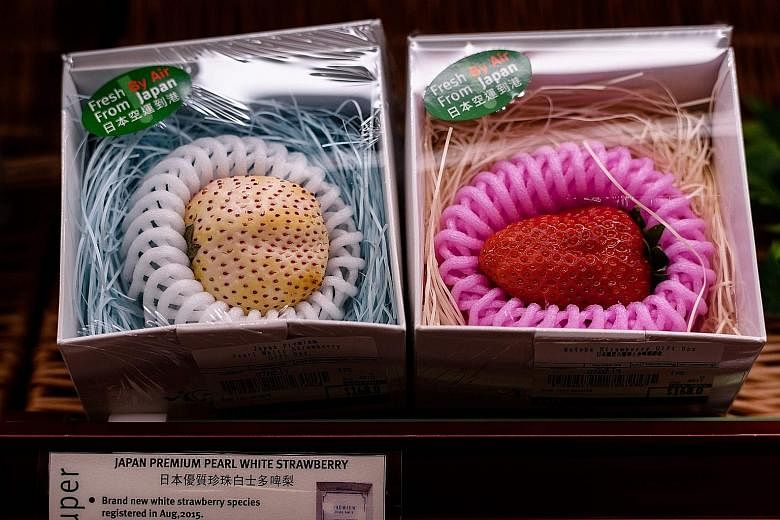HONGKONG • It might be a healthy food choice, but Hong Kong's latest fruit fad is doing serious damage to shoppers' wallets.
From luxury supermarkets to outdoor stalls, expensive premium produce is increasingly on show and sought after by customers.
At Hong Kong's vibrant Yau Ma Tei fruit market, a Malaysian durian goes for HK$600 (S$110) and Tasmanian cherries for HK$550.
On the shelves of high-end supermarket City Super, a single Japanese strawberry recently fetched a whopping HK$168. Each strawberry was nestled on a paper pillow, encased in a glossy cardboard box.
The appetite for pricey fruit from far afield reflects a quest for what punters see as clean, fresh produce.
Fruit shoppers said they did not consider produce from mainland China - the source of much of Hong Kong's food - as healthy.
Accountant Peter Wong, 48, said: "I used to buy mainland fruit, but now I could never go back. It is not as safe and fresh."
He spends about HK$2,000 on imported fruit each month for himself, his wife and their two children. "The fruit is fresher if it comes from overseas, like the USA or South Africa or Japan," he said as he browsed the Yau Ma Tei stalls.
Reports of farmers using excessive pesticides, fertilisers and preservatives in China have damaged the reputation of its produce, and food grown in Hong Kong is very limited.
The trend partly reflects a growing desire for a healthier diet, in a city where traditional dishes can be heavy on salt and fat. But it is also about status - expensive fruit has become a popular gift to impress loved ones and colleagues, tapping a Chinese tradition of giving fruit to bring good luck and prosperity.
The trend is not limited to Hong Kong. Japanese families and businesses routinely offer expensive fruits as presents to express gratitude. Specialised luxury fruit parlours, often located inside high-end department stores, boast a wide selection of spotless cherries, mangoes and melons, set neatly inside cushion-lined wooden boxes.
Top-of-the-line fruits can command sky-high prices at the first auction of the season, from "Ruby Roman" grapes attracting bids going up to US$4,000 for a bunch, to a pair of cantaloupe melons sold for more than US$9,000.
In South Korea, fruit has also long been a popular gift option during the Lunar New Year holiday and Chuseok, a harvest festival.
Elaborately packaged imported fruits have become especially popular in some quarters in recent years, but after a new anti-graft law took effect last year, putting a limit of around US$50 (S$70) on the value of business gifts, such sales have declined.
AGENCE FRANCE-PRESSE


